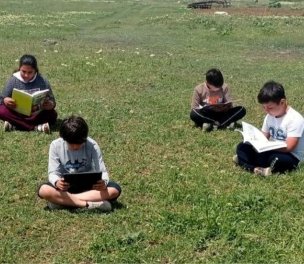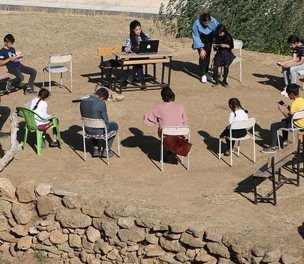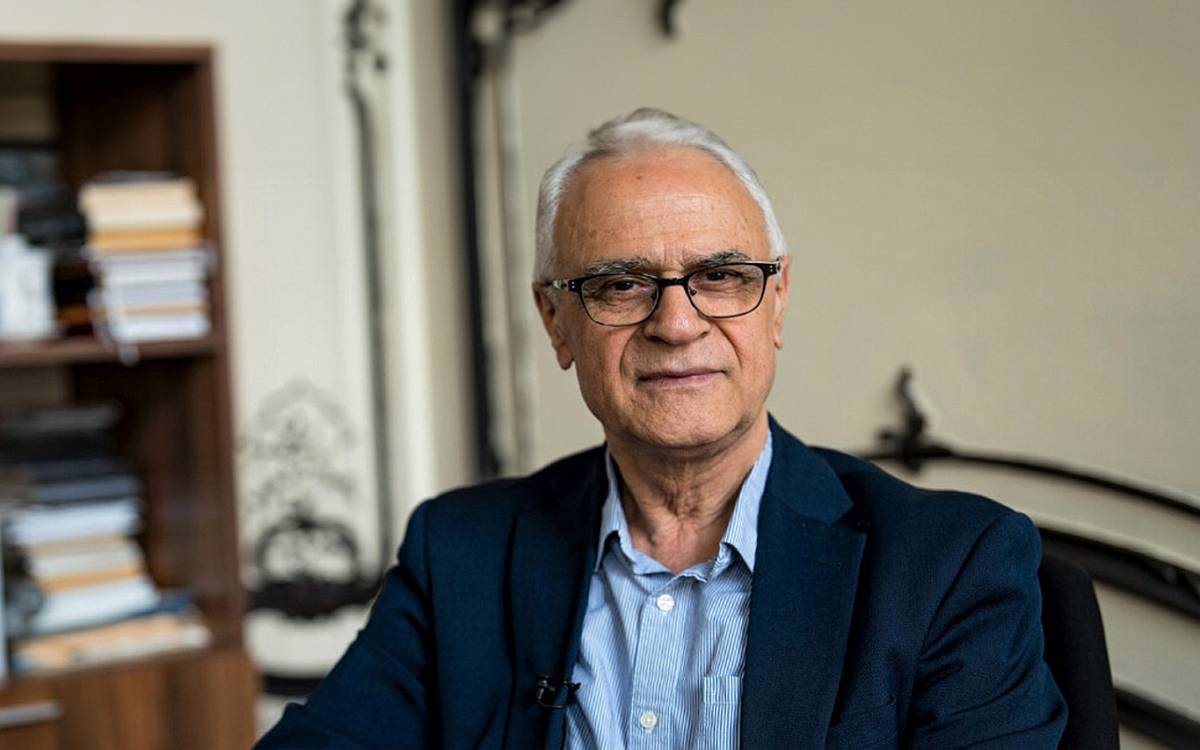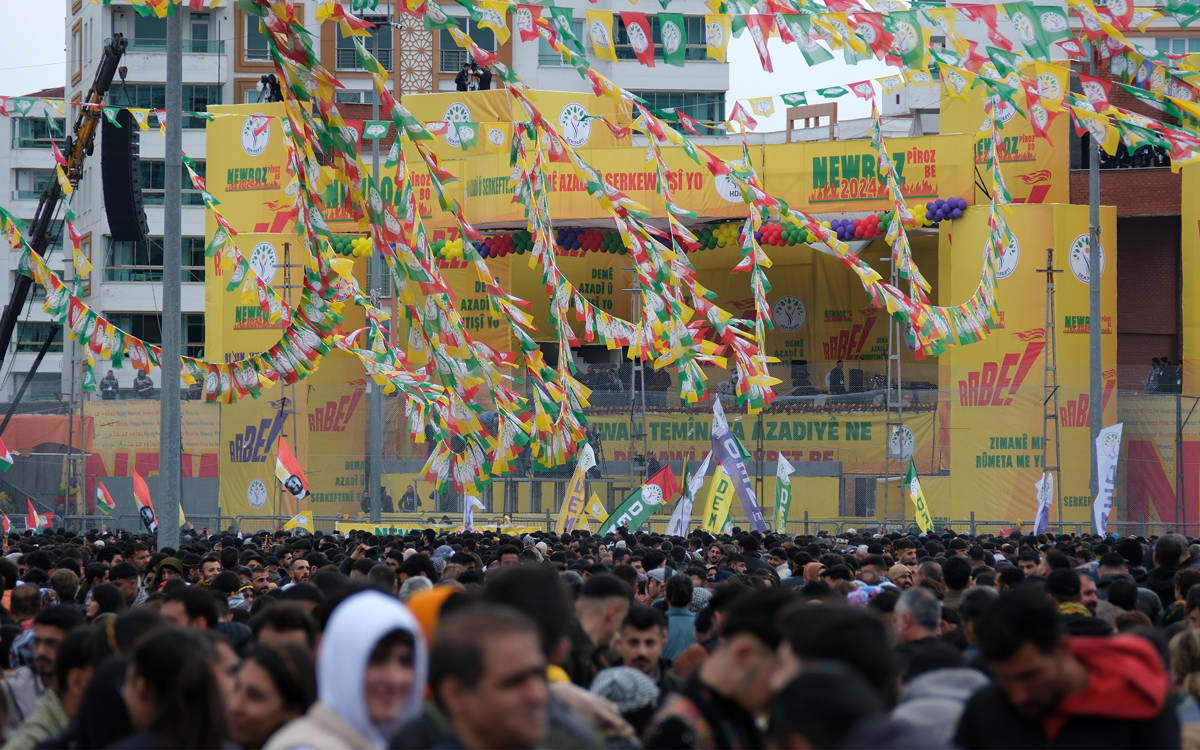* Photo: Anadolu Agency (AA)
Click to read the article in Turkish
"There is no Internet connection in our village. We cannot attend the live classes, we climb the hill to take the classes everyday."
This is how a 12-year-old student from Turkey's eastern province of Iğdır explains their inability to access distance education, which has been introduced in the country as part of COVID-19 measures.
Another student says that there are 30 students in the village. She talks about the weather conditions, stressing that small children do not have the strength to endure them. Right after her, another student calls out to Ziya Selçuk, Turkey's Minister of National Education:
"Teacher Ziya, we ask you for help, we are really in a bad situation. We don't want to miss live classes, we want Internet."
As their calls and requests remain inconclusive, students climb the highest hill in their neighborhood and record a video. By sharing it on social media, they try to make their voices heard by Minister Selçuk.
Against this backdrop, we have spoken with Gökmen Gürcan, the Chair of Education and Science Laborers' Union (Eğitim-Sen) Iğdır Branch.
'Most students come to school hungry'
According to Gürcan, 50 percent of the students do not have access to the Internet in Iğdır. He underlines that families do not have the financial means to buy computers, tablets and phones or afford the Internet:
"We cannot even meet the primary needs of children in normal education, a vast majority of students come to school hungry. How will we give them education? Their mothers and fathers do not work; as for the agricultural fields, they are not cultivated; there is no animal breeding.
"Conditions are that hard and they are now much harder due to the pandemic. There was even a free bread campaign once. The seriousness of the situation can also be inferred from this."
'Children climb the hills, but don't have tablets'
Gürcan notes that even when students have the economic means, they cannot access education due to problems in the infrastructure:
"This is not something that is only experienced in villages or districts. This is the case all across Iğdır province.
"In some places, students are indeed climbing the hills, just like in the video shared on social media. But they do not have tablets, they take the mobile phones of their mothers or fathers with them. Three-four siblings are trying to follow their classes with a single phone.
"There is no proper Internet even in large cities. There are problems even in places like İstanbul. Coupled with the economic conditions of the families here and the infrastructure problem, the problem grows even further."
'They said they would distribute tablets, but...'
Raising concerns about the lack of materials of students, Gürcan also reminds us of a previous announcement by Minister Selçuk, who said that 500 thousand tablets would be distributed to students:
"It was said that tablets would be distributed, but it has not happened in Iğdır. We have at least not heard from our students or colleagues that they have been distributed. Moreover, while there are 18 million students, the number of tablets to be distributed is 500 thousand... It is already not enough."
Gürcan says that 2 or 3 students from a 40-student class can attend the live classes at most and adds: "We ask our fellow teachers how many students attended the class every day. I asked a fellow teacher today. She said that 2 students from a 40-student class attended it. Because they do not have computers, tablets or Internet access. How can the child attend it?
"At one time, they also talked about EBA [distance education system] support points, but they have not achieved results, either. They were going to gather students in a classroom, but why were the schools closed in the first place? Children also had problems with the transportation; I mean, the EBA Support Points have not offered a solution."
'Sometimes, no one attends the class'
A teacher working in an Islamic vocational (imam hatip) high-school from central Iğdır also talks about the hardships faced by students:
"Class sizes are small in imam hatip schools. There are 30-35 people in classrooms. The economic condition here is also better than other schools; nevertheless, 3-5 students at most attend the life class.
"Sometimes, there is no one in the class. When I ask them why, they say that there is no phone or tablet. They run out of Internet data or they follow the classes in turn with their siblings and the turn does not come to them.
"TVs are not enough, either. Because the class hours conflict. They try to watch the rebroadcasts. In other words, it is a huge problem. We recommend that they should follow the classes from their books, we make them recommendations to ensure that they will remain engaged. But it does not suffice." (RT/SD)


















